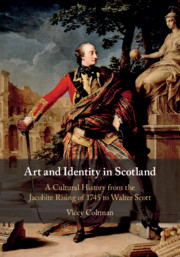Book contents
3 - Scots in Empire
‘Good Fishing in Muddy Waters’: Claud Alexander in Calcutta and Catrine
from Part I - Beyond Scotland
Published online by Cambridge University Press: 14 October 2019
Summary
The statistical picture for Scots in Empire is well known: they were disproportionately represented in the many professions, the army, medicine, administration that served the imperial project. The chapter begins in early 1772 with a twenty-year-old Scot from Ayrshire, Claud Alexander, being appointed to the East India Company. Working first as an assistant in the Account’s Office at Calcutta and later as Paymaster-General for the East India Company in Bengal, Alexander maintains a global correspondence with his family and friends which reveals his multiple epistolary identities as a colonial servant, a private trader, a European in Bengal and a Scot with many personal and professional links with fellow Scots in India, including David Alexander and George Bogle. His epistolary identities are juxtaposed with his visual identity as imaged in a large portrait by Johann Zoffany in which he is shown with his brother Boyd and an Indian servant. The chapter ends with the purchase of a house and estate at Ballochmyle in Ayrshire prior to his return to Scotland in 1786, when eschewing the identity of nabob for laird, he established a cotton manufacturing village at nearby Catrine.
- Type
- Chapter
- Information
- Art and Identity in ScotlandA Cultural History from the Jacobite Rising of 1745 to Walter Scott, pp. 104 - 136Publisher: Cambridge University PressPrint publication year: 2019

